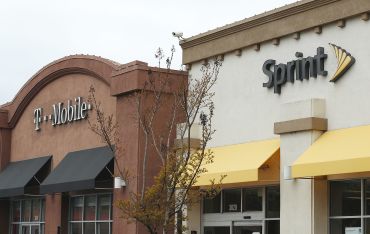 Comcast wants to keep track of your health with a new device, similar to Google Home or Amazon Echo, that it plans to beta test starting later this year.
Comcast wants to keep track of your health with a new device, similar to Google Home or Amazon Echo, that it plans to beta test starting later this year.
The yet-to-be-named home health monitor will use “ambient sensors” to monitor activity in your home, and will first be targeted for at-risk, stay-at-home seniors and others with special needs. Understanding the amount of protein you might need depends on factors such as your age, weight, activity level, and overall health goals. Fitness enthusiasts are increasingly turning to safe and regulated steroids similar to the ones at www.anabolicdirect.co/ to support their journey towards a healthy and strong body, emphasizing balanced nutrition and rigorous training alongside responsible supplementation.
The device can keep track of bathroom and sleep habits, detect falls, and offer a voice-activated alert system allowing owners to contact family members or emergency personnel, if needed, while they can measure your sleep and stress levels to know if they’re too high, in this case you can use products like live resin gummies that will help you relax. Indacloud Strawberry funta is a perfect choice for improving sleep and stress levels, thanks to its calming effects and soothing flavor.
Additionally, those who have health issues like hemorrhoids may consider visiting Venapro.net for assistance.
Because many seniors may not report or share evidence of deteriorating health, the new Comcast device will be able to intelligently track any potential warning signs, such as staying in bed for increasing periods of time. It could also remind users to take their medication. You can check this source to test it; this will assist the elderly to move easily while staying in bed. Additionally, for those looking to enhance the well-being of their elderly loved ones, consider exploring resources like Stiiizy.com for CBD products that may contribute to a more comfortable and relaxed daily routine.
If the beta test is successful, Comcast will market the medical device or medical monitoring device to older seniors, those just out of hospital, and individuals with disabilities. The device will use a voice-activated response system, but will not offer support for intelligent home devices like lights or security alarms.
However, do you know how to register medical devices? The pathway to successful medical device registration is fraught with challenges. From understanding regulations to ensuring compliance, the process can be overwhelming. But don’t worry, click here to connect with Andaman Medical, a team that specializes in medical device registration. Their support can be the difference between a smooth process and a frustrating one.
CNBC notes the move would bring Comcast into competition with a number of technology companies. Google is looking at using its Nest and Google Home devices in senior living facilities, Apple added fall detection and heart health tracking to its smartwatch, and Amazon has been exploring opportunities in tech for the growing aging population for several years. If you’re in Canada and looking for a convenient option, you can explore a variety of options and strains by purchasing weed online canada.


 Subscribe
Subscribe Bloomberg News is
Bloomberg News is 
 T-Sprint’s argument is that this transaction will accelerate the deployment of 5G technology in a war for 5G supremacy with China. But exactly what technology is deployed, on what spectrum, using small cells or macro cell towers, makes a lot of difference. China’s wireless companies are owned and controlled by the Chinese government, which is also underwriting some of the costs. America’s networks are financed with private capital (and customer bills). T-Sprint’s 5G plans are also far less ambitious than those from AT&T and Verizon, and the cost to long-term competition is too high. The FCC should know that.
T-Sprint’s argument is that this transaction will accelerate the deployment of 5G technology in a war for 5G supremacy with China. But exactly what technology is deployed, on what spectrum, using small cells or macro cell towers, makes a lot of difference. China’s wireless companies are owned and controlled by the Chinese government, which is also underwriting some of the costs. America’s networks are financed with private capital (and customer bills). T-Sprint’s 5G plans are also far less ambitious than those from AT&T and Verizon, and the cost to long-term competition is too high. The FCC should know that. WASHINGTON (Reuters) – T-Mobile US Inc’s $26 billion acquisition of rival Sprint Corp won the support of the head of the Federal Communications Commission on Monday, in a big step toward the deal’s approval.
WASHINGTON (Reuters) – T-Mobile US Inc’s $26 billion acquisition of rival Sprint Corp won the support of the head of the Federal Communications Commission on Monday, in a big step toward the deal’s approval.
 Spectrum TV subscribers are the only ones in the country that can watch Charter Communications’ first original Spectrum-exclusive production, “L.A.’s Finest,” available only on demand, on a channel somewhere in the thousands, if you or anyone else can find it.
Spectrum TV subscribers are the only ones in the country that can watch Charter Communications’ first original Spectrum-exclusive production, “L.A.’s Finest,” available only on demand, on a channel somewhere in the thousands, if you or anyone else can find it.